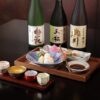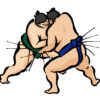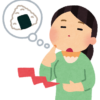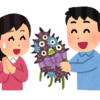Ittekimasu and Itterasshai. What do they mean? いってきます いってらっしゃい

Ittekimasu.
(いってきます:行ってきます)
Itterasshai.
(いってらっしゃい:行ってらっしゃい)
The above expressions are very often used in Japanese conversation. These are very basic phrases.
If you live in Japan, you should definitely remember these.
What do “ittekimasu" and “itterasshai"?
So what do “ittekimasu(いってきます:行ってきます)" and “itterasshai(いってらっしゃい:行ってらっしゃい)" mean?
“Ittekimasu"
This is a fixed greeting that means “I am off." There is no such fixed phrase in English, and the following are equivalent to similar phrases.
See you later.
Bye!
I am going now.
I am leaving.
I am off.
Just as the above English has an infinite number of situations in which they are used, “ittekimasu" and “itterasshai" are also used in many situations.
Perhaps many Japanese would first say that these Japanese phrases are used when someone in the family goes to work or school.
However, these greetings are a Japanese custom and a part of their lives. It thus is too natural to say them, and many Japanese often say them automatically in various situations without thinking deeply.
For example,
they say “ittekimasu" to a pet that doesn’t reply before going out, even people who live alone say “ittekimasu" to themselves while leaving the house,
saying “ittekimasu" to Japan which is getting smaller and farther away when taking off,
a workplace staff goes out for fieldwork saying “ittekimasu" to others,
going into a concert hall (whether playing or watching),
before exams,
before a job interview,
after having made a decision to fly a bungee jump,
before confessing love to someone,
and the list goes on.
In other words, if you decide to do something and move from there, you can use “ittekimasu" in most cases.
“Itterasshai"
When someone says “ittekimasu", the corresponding word is “itterasshai(いってらっしゃい:行ってらっしゃい)".
This is also a fixed phrase every time. There is no such expression in the English-speaking world, but the following are phrases with similar meanings.
Take care.
Have a good day!
See you later.
Have a good day.
Bye!
Enjoy your day!
Have fun!
Have a great trip!
Enjoy your trip!
Have fun at school!
Have fun at work!
When it comes to English expressions, there are many ways to say it depending on the situation, but in Japanese conversation, you can only say certain words, so it’s very simple.
















